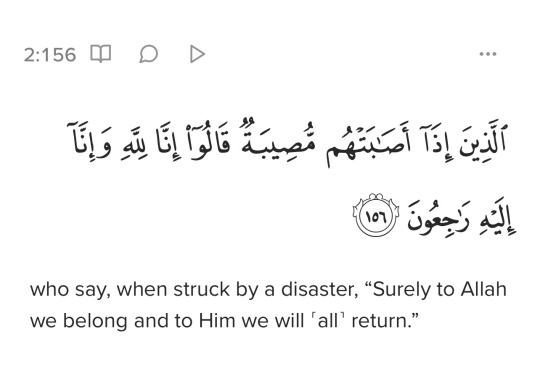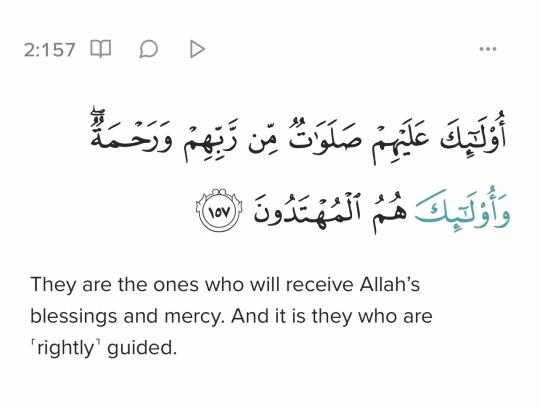#al baqarah
Explore tagged Tumblr posts
Text
Hell in Paradise
By Faisul Yaseen
On a chilly December morning, something took over J, a young baker in south Kashmir’s Anantnag district as he went on a rampage, killing his mother and two others, and leaving his father and five others injured.
“He started attacking everyone ferociously like a bear. I don’t know what happened to him. It was as if he turned mad. He even attacked me and dragged his mother along and killed her too,” J’s father says, unable to come to the grips of the tragedy that has befallen the family.
As the cold winter paved way for the blooming spring, it was déjà vu.
This time another son went bizarre in north Kashmir’s Sopore area when he strangled his mother to death.
Rewind to the blazing autumn, and we see the same tragic events unfold in Kehribal village of Anantnag.
A son, along with his friend, tried to snatch money from his mother, resulting in an argument between the mother and the son.
Infuriated, the son beats and punches his mother forcefully, resulting in her fall inside the kitchen of their house.
With the help of his friend, the son brings a big stone and hits it on his mother’s head, leaving her dead.
The heartrending story is played over and again.
What toxicity is in the air?
All the three sons involved in the gruesome murder of their mothers are said to be involved in substance abuse.
Professor at the Institute of Mental Health and Neurosciences (IMHANS), Kashmir, Dr Arshad Hussain says that though substance abuse is associated with harm to self in most instances, in some circumstances it is associated with violence to others.
“Most of the research done in the field does conclude that substance use like alcohol and cannabis are associated with increased crime rates,” he says. “They are associated with aggression which doesn’t have a stop button as drugs cut the brakes in our frontal lobes which otherwise modulate our behaviours. Rising crime rates and accidents are indirect heinous costs of rising substance use.”
*****
Narcotics is the third largest business in the world with a turnover of 500 billion US dollars, and, according to the latest World Drug Report released by the United Nations Office on Drugs and Crime (UNODC), some 35 million people globally are suffering from drug use disorders.
In Kashmir too, drug addiction is becoming a rampant phenomenon, bringing other associated crimes along.
According to the ‘The National Survey on Extent and Pattern of Substance Use in India’, one million people in a population of 12.5 million in Jammu and Kashmir have fallen to the menace of drug addiction.
What lures people in Kashmir to substance abuse?
“Various factors,” says Prof Aneesa Shafi, Head of the Sociology Department of the University of Kashmir (KU).
“Our value system getting weak, global connectivity, media, restricted entertainment sources, peer pressure, easy access to drugs, and shrinking space for expression are some factors that push people to substance abuse,” she says.
Those indulging in drug addiction mention other factors too.
K, who is in his early twenties, says that in his teens, he used to be distressed due to the expectations of his parents of excelling at studies and would often remain confined to his room.
“To complicate matters, the girl I loved turned me down,” he says.
Unable to deal with rejection and failure to shine at studies, K was drowning in the pool of depression when a friend suggested trying cannabis.
“It gave me a high,” he says. “I was hooked.”
Within sometime, K began trying other drugs like heroin that completely derailed his life.
Soon, he was a school dropout.
*****
The substance abuse in pop culture too has impacted the lives of youth.
With easy access to Over The Top (OTT) media platforms on their mobile phones, some substance abusers say that popular Hollywood movies like ‘Train Spotting’, ‘Pulp Fiction’, and ‘The Basketball Diaries’ and TV shows like ‘Narcos’ and ‘Breaking Bad’ influenced them in doing drugs.
Others say they were swayed by the mention of intoxication in poetry like Allama Iqbal’s couplet, ‘Mai ḳhana-e-Europe ke dastur nirale hain; laate hain surur avval dete hain sharab aḳhir’ or Bashir Badr’s, ‘Na tum hosh main ho na ham hosh main hain; chalo maikade main vahin baat hogi’.
Yet others say they started doing drugs for the exploration of creative processes, something that has been in discourse for long.

Thomas De Quincey’s ‘Confessions of an English Opium-Eater’ published in 1821 had first romanticised the link between intoxicants and artists’ careers in songs, novels, and films.
Head of the Psychiatry Department at Government Medical College (GMC), Srinagar, Dr Muhammad Maqbool Dar is of the opinion that unregulated media and social media were playing the main role in pushing youth to substance abuse.
“Youth get influenced by what keeps coming on the media and social media over and over,” he says. “More than the influence of drugs in pushing them toward crimes, copycat homicides and copycat suicides are a bigger concern.”
*****
Though the phenomenon of drug addiction in Kashmir has witnessed a surge in recent years, Kashmir has long had its tryst with substance abuse.
Seeing faith healers and traditional musicians in a state of high has been socially acceptable since long.
In their book ‘Dimensions of Drug Abuse in Kashmir: A Study of Anantnag District - A Sociological Perspective’, Shahzad Wani and Pirzada M Amin write that drug abuse has been prevalent in Kashmir society for a long time and functioned as an institution in the form of ‘Takayas’.
‘Takayas’ used to be the havens of cannabis consuming addicts in Kashmir that used to have such social acceptance that people would even send them a share from their feasts.
By the 1990s, the menace of substance abuse had started taking root in Kashmir.
In 1993, Dr Mushtaq A Margoob and Dr K S Dutta set the alarm bells ringing in their report ‘Drug abuse in Kashmir – Experience from a Psychiatric Diseases Hospital’ published in the Indian Journal of Psychiatry.
Their report stated that the menace was “touching new heights”, the situation would eventually become “explosive”, and “urgent steps” needed to be taken to curb it before it was too late.
Noted Kashmiri poet, writer, and satirist Zareef Ahmad Zareef blames the political leadership for failing to control the menace of drug addiction in the region.
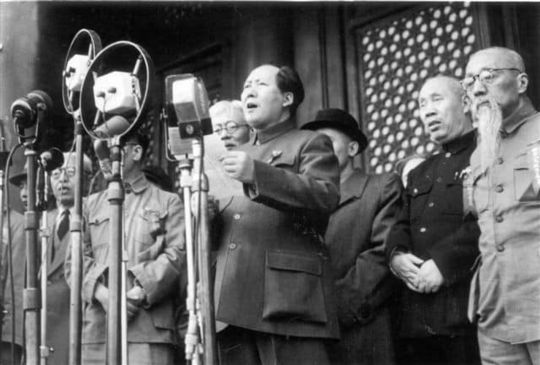
Giving the example of Mao Zedong, Chinese communist revolutionary leader and founder of the People's Republic of China, Zareef says Zedong eradicated both consumption and production of opium in China during the 1950s.
Under Zedong, 10 million addicts were forced into compulsory treatment, dealers were executed, and new crops planted in opium-producing areas.
*****
The situation regarding substance abuse has gone so bad now that a recent study done by the Psychiatry Department of GMC, Srinagar revealed that Kashmir had surpassed Punjab in drug abuse cases and was currently positioned at number two among top drug abuser regions in India not far behind Northeast.
According to the study, a whopping 33,000 syringes are used to inject heroin by drug abusers in Kashmir every day.
The worrying sign is that most drug abusers are in the age group of 17 to 33 years and unemployed.
The study says that on an average, a single drug abuser spends Rs 88,183 every month on substance abuse.
The COVID-19 pandemic also complicated the matters.
According to doctors, the substance abuse among the addicts increased during the pandemic because of boredom due to lockdown.
With the ‘dark web’, tech-savvy youth have easy access to illicit drugs.
*****
As youth continue to fall into the rabbit hole of substance abuse, calls for awareness and rehabilitation are growing shriller.
A study ‘Drug Addiction Causes and Awareness among people of Pulwama District of Jammu and Kashmir State’ by Tahira Sidiq, Bilal Ahmad Bhat, Nusrat, and Feroz Ahmad Wani in the Saudi Journal of Biomedical Research says that 94.17 percent respondents they surveyed were not aware of the process of drug de-addiction.
The study urges society elders and religious leaders to come forward and support people who want to eliminate drug abuse from J&K.
*****
As drug abusers frequently feel alone and alienated, religion plays a role in providing spiritual assistance and builds their capacity to overcome this problem.
The holy Quran has several references against intoxication.
Chapter 2 (Al-Baqarah), Verse 219 states: “They ask you about wine and games of chance. Say: ‘In both these there is great evil, even though there is some benefit for people, but their evil is greater than their benefit.’”
Chapter 4 (An Nisa) Verse 43 states: “Believers! Do not draw near to the Prayer while you are intoxicated until you know what you are saying nor while you are defiled - save when you are travelling - until you have washed yourselves.”
Chapter 5 (Al-Maidah), Verses 90-91 state: “O believers! Intoxicants, gambling, idols, and drawing lots for decisions are all evil of Satan’s handiwork. So shun them so you may be successful. Satan’s plan is to stir up hostility and hatred between you with intoxicants and gambling and to prevent you from remembering Allah and praying. Will you not then abstain?”
There is also mention against intoxication in the Hadith.
Al-Bukhari (4087) and Muslim (1733) narrated that Abu Musa said: “The Prophet (SAW) sent Muadh ibn Jabal and me to Yemen, and I said: O Messenger of Allah, there is a drink that is made in our land and is called al-Mizr, which is made from barley, and another drink called al-Bit, which is made from honey. He said: “Every intoxicant is haram.”
Al-Bukhari (4343) and Muslim (3032) narrated that Ibn Umar said: “I heard Umar say from the minbar of the Messenger of Allah (SAW): “O people, the prohibition of khamr was revealed when khamr was made from five things: grapes, dates, honey, wheat and barley. Khamr is whatever befogs the mind.”
*****
Kashmir lacks proper facilities for rehabilitating drug users and lack of knowledge regarding drug addiction, detoxification, and rehabilitation.
The governmental agencies, educational institutions, NGOs, and other social work organisations need to scale up their awareness programmes.
As some substance abusers die of overdose while some commit suicide when they become hopeless, parent and care knowledge also needs to improve.
Professor in the Department of Psychiatry IMHANS, Kashmir, Dr Yasir Rather says there are Addiction Treatment Facilities (ATFs) in all district hospitals of J&K.
“However, there is also a need for long-term rehabilitation centers that would provide comprehensive treatment – a combination of medical, psychological, and social services to help individuals overcome their addiction and regain control of their lives,” he says.
Though the crackdown of law-enforcing agencies’ against drug traffickers has been welcomed, people are also suspicious at times.
When former Punjab chief minister Captain Amrinder Singh spoke about the drug menace in 2018, he told Hindustan Times, “One new source of drugs is Kashmir despite so much security.”
However, SSP J&K Anti-Narcotic Task Force (ANTF) Vinay Kumar says that policing related to narcotics and awareness was getting better.
“Every year, we used to register around 22 to 23 cases under the Prevention of Illicit Traffic in Narcotic Drugs and Psychotropic Substance Act, 1988, however, in the year 2022 we registered 235 cases under PITNDPSA,” he says.
Kumar feels that as Police are getting teeth to seize the financial assets and properties of the repeated offender, the results on the ground are getting better.
Stressing that while the Union Ministry of Social Justice and Empowerment had informed the Lok Sabha that 4.6 percent of J&K population was involved in substance abuse, he says that according to IMHANS, Srinagar, only 2.5 percent of Kashmir population was involved.
Kumar says that the first priority of the Police Department was to take action against those working on the inside of the organisation for drug smugglers.
“Cases have been registered against BSF officials, CRPF officials, and Police officials. Five to six Police officials were chargesheeted in a single case,” he says.
While dealing strongly with drug traffickers is a welcome development, there is a need to treat substance abuse as a disease and drug addicts as diseased, rather than criminals.
*****
L, a youth who has been sober for the past 2 years after being a chronic addict for over 5 years says he owes his recovery to his parents and medics who treated him.
“If my parents wouldn't have been understanding, I would never have been able to come out of this abyss,” L says. “If I could fight addiction, anyone can.”
Greater Kashmir
#imhans#unodc#university of kashmir#ott#allama iqbal#bashirbadr#thomas de quincey#gmc#zareef ahmad zareef#ma zedong#covid-19#dark web#quran#al baqarah#al nisa#al maidah#al bukhari#hadith#punjab#captain amrinder singh#antf#PITNDPSA#bsf#crpf#police#union ministry of social justice and empowerment#ngos#ibn umar#abu musa#anantnag
2 notes
·
View notes
Text
al baqarah ayat 201-286
themes:
"pride carries them off to sin" (206).
dedication of life (207).
disbelievers might also scorn belief because "The life of this world" appeals to them (212).
if evil outweighs benefit, a thing should be avoided (219).
marry only in allah (221).
don't use allah's name in vain (224).
allah knows your intentions (220, 225).
"Women have rights similar to those of men equitably, although men have a degree ˹of responsibility˺ above them" (228).
"the rich according to his means and the poor according to his. A reasonable compensation . . ." (236).
"Graciousness is closer to righteousness. And do not forget kindness among yourselves" (237).
five prayers (238).
the many wrongdoers vs the few good-doers (243, 246, 249, etc.).
correction: allah is not "We" and is not the speaker. his revelations are being delivered by another (252). this changes some things, because it might not be allah who does everything, but also the "We" (254).
light and darkness (257).
people should "not follow their charity with reminders of their generosity" (262, see 271, fn).
no interest (275-276). apparently interest is called riba and is haram, as are mortgages, so in muslim nations the ijara (lease to own) model is used with similar returns.
forgive your debtors (280).
"All good will be for its own benefit, and all evil will be to its own loss" (286). allah is merciful and just.
questions:
"Humanity had once been one community ˹of believers before they lost faith˺" (213). when?
". . . those who conspired to accept Islam then leave it soon after only to shake the faith of early Muslims" (217, fn4). another reason?
is all-knowing god who knows your intentions supposed to deter acts that would otherwise go undetected, like marrying another man just so you can return to your first husband (229 & fn1, 230; there are others, e.g. 231)?
i'm curious about ayah 253. why point this out? why did allah will what he did?
do ayat 245 and 261 encourage giving for the wrong reason? or do they just mitigate fear of poverty and discourage stinginess (268)?
when is charity followed by hurtful words or injury (262-263)?
what is the strong rain in ayah 264? what exactly is the soil?
what is ayah 266 all about?
what does it mean to be "engaged in the cause of Allah" (273)?
is ayah 285 really basically propaganda?
is the believer–disbeliever dichotomy so integral (286)?
notes:
"There are some ˹hypocrites˺ who impress you with their views regarding worldly affairs and openly call upon Allah to witness what is in their hearts, yet they are your worst adversaries" (204).
"Allah does not like mischief" (205). fav
"Are they waiting for Allah ˹Himself˺ to come to them in the shade of clouds, along with the angels? ˹If He did˺, then the matter would be settled ˹at once˺" (210). but, he doesn't.
ayah 214 bothers me.
"˹consensually˺" inserted in ayah 223.
"It is permissible to have intimate relations in any position" (223, fn2). W. potential foreplay mention?? (fn3).
wife has a "right to sexual satisfaction" and can seek divorce after four months without it (226, fn). counseling recommended.
don't be jealous (232).
you can slide in low key (235).
the children of israel kinda suck.
"According to Muslim belief, [ayah 255] is the greatest verse in the Quran" (fn2).
allah as "the firmest, unfailing hand-hold" (256) reminds of the bible's god as a "crag" and a "stronghold."
ayah 259 is crazy.
"You are not responsible for people’s guidance ˹O Prophet˺" (272) feels like a parallel to the bible, like to jonah.
"Verse 281 is believed by many scholars to be the last verse revealed of the Quran" (fn).
ayah 282 is crazy, but the fn is clarifying and interesting. still crazy.
0 notes
Text
Allah (swt) said in Surat Al-Baqarah:
"When it is said to them do not commit corruption on the earth, they say indeed we are only setting things right ( or we are only peacemakers). No doubt they are committing corruption but they do not proceed it."
The human being has a tendency to rationalize their misbehavior and their evil deeds. It's just not wired in the human being to have a negative self-image . So when we're reading verses like this, it's important for us to take them as warnings to ourselves because that potential for hypocrisy exists within us and that potential for its diluted self righteousness exists within us.
Hassan Al Basry said " nobody fears hypocrisy except the believer and nobody feels safe from hypocrisy except the hypocrite "
0 notes
Text
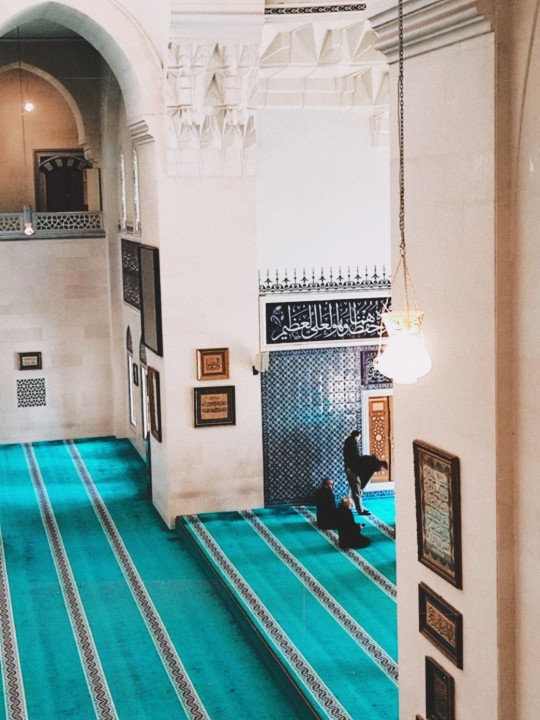
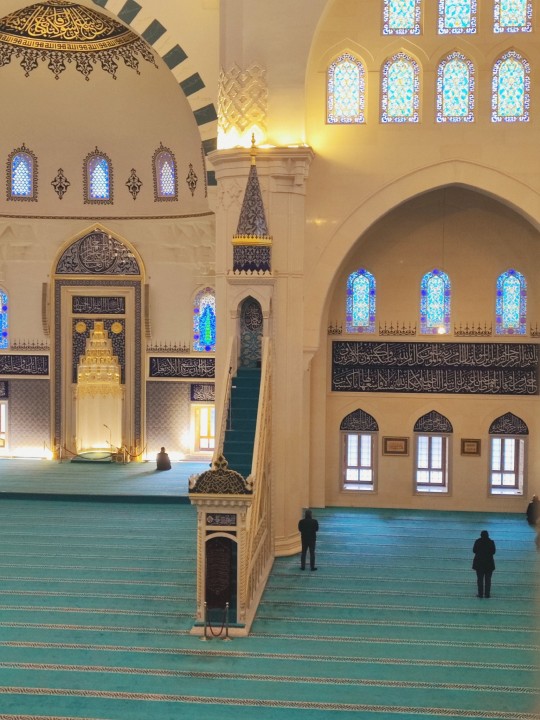
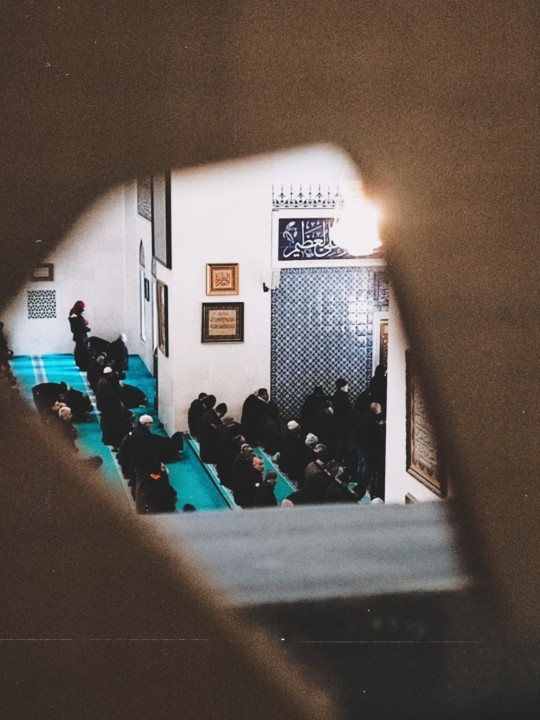
doğrusu biz Allah'a aidiz ve kuşkusuz O'na döneceğiz.
29 notes
·
View notes
Text


إِنَّ فِي خَلْقِ السَّمَاوَاتِ وَالْأَرْضِ وَاخْتِلَافِ اللَّيْلِ وَالنَّهَارِ وَالْفُلْكِ الَّتِي تَجْرِي فِي الْبَحْرِ بِمَا يَنفَعُ النَّاسَ وَمَا أَنزَلَ اللَّهُ مِنَ السَّمَاءِ مِن مَّاءٍ فَأَحْيَا بِهِ الْأَرْضَ بَعْدَ مَوْتِهَا وَبَثَّ فِيهَا مِن كُلِّ دَابَّةٍ وَتَصْرِيفِ الرِّيَاحِ وَالسَّحَابِ الْمُسَخَّرِ بَيْنَ السَّمَاءِ وَالْأَرْضِ لَآيَاتٍ لِّقَوْمٍ يَعْقِلُونَ (164)
Indeed, in the creation of the heavens and the earth; the alternation of the day and the night; the ships that sail the sea for the benefit of humanity; the rain sent down by Allah from the skies, reviving the earth after its death; the scattering of all kinds of creatures throughout; the shifting of the winds; and the clouds drifting between the heavens and the earth—˹in all of this˺ are surely signs for people of understanding.
#mine#my best gifset yet#gifs#clouds#subhanallah#sky#airplanes#quran#surat al baqarah#Alhamdullillah
188 notes
·
View notes
Text
﴿ أَيَّامًا مَّعْدُودَاتٍ ۚ فَمَن كَانَ مِنكُم مَّرِيضًا أَوْ عَلَىٰ سَفَرٍ فَعِدَّةٌ مِّنْ أَيَّامٍ أُخَرَ ۚ وَعَلَى الَّذِينَ يُطِيقُونَهُ فِدْيَةٌ طَعَامُ مِسْكِينٍ ۖ فَمَن تَطَوَّعَ خَيْرًا فَهُوَ خَيْرٌ لَّهُ ۚ وَأَن تَصُومُوا خَيْرٌ لَّكُمْ ۖ إِن كُنتُمْ تَعْلَمُونَ﴾
[ البقرة: ١٨٤]
┄ׅ━ׄ┄ׅ -ּ 🌙 ּ ֗━ׄ┄ׅ━ׄ.
#omnia#رمضان مبارك#رمضان كريم#اللهم بلغنا رمضان#سورة البقرة#surah al baqarah#quraan#quran#quran kareem#qur'an#قرآن كريم#قرآن#آيات قرآنية#قراءة القرآن#قران كريم
17 notes
·
View notes
Text
Allah’s Closeness in Every Call – Surah 2:186
#quran recitation#islam#nature#quran#islamic#quran ayah#quran reading#islamicreminders#duaa#deenoverdunya#deen#islamicquotes#surah al baqarah#quranic#quranicverses#islamicpost#spirituality#spiritual journey#meditation#consciousness#spiritual awakening#spiritual#dua دعاء#prophet#allah#hadith#dua saleh#faith in god
7 notes
·
View notes
Text
Surah Al Baqarah Verse 43-45
#allah#allahswt#welcome to islam#islamdaily#quran#islam#allahuakbar#islamic#holy quran#quran kareem#surah#surahs#surah al baqarah#quranic#quraan#quran ayah#muslim ummah#muslim#quran recitation#quran reading
9 notes
·
View notes
Note
what would you do if you met arrakore
if I met arrakore I'd recite ayatul kursi
#SORRY ARRAKORE...#ninjago#ninjago dragons rising#ninjago arrakore#levi's asks#ty for the ask!#hananonymous#if I had also met nadakhan#I would've recited the entirety of surat al baqarah#maybe also the bathroom dua lmao
20 notes
·
View notes
Text
al baqarah ayat 101-200
themes:
those who "sold their souls" did not know (102-103).
the quran and its rules were revealed in stages (106, fn).
muhammad echoes moses (108, fn), and his listeners echo moses' listeners (118).
"Pardon and bear with" disbelievers (109).
he causes to become (117).
the quran is also a warning (119).
allah is all-hearing, all-knowing, almighty, and all-wise (127, 129).
"faith of Abraham" contrasted with that of "The Jews and Christians" (135).
hierarchy (143). similar to heads in the bible.
fear of god (150).
satan is humanity's "sworn enemy" (168).
"Righteousness is not in turning your faces towards the east or the west. Rather, the righteous are those who believe in Allah, the Last Day, the angels, the Books, and the prophets . . ." (177).
fasting during ramadan (183-185).
"Allah intends ease for you, not hardship" (185). in that vein, intercourse during the night of ramadan was made permissible (187, fn2).
"being devoted to Allah wholeheartedly is more important than blindly following old traditions" (189, fn).
"Fight in the cause of Allah ˹only˺ against those who wage war against you, but do not exceed the limits. . . . Do not wish to meet your enemy in battle but always pray for well-being. If fighting is a must, then be steadfast" (190, fn).
questions:
allah sent harut and marut (102)? what mischief did the people cause (fn)? what was this magic anyway?
when is the truth made clear to disbelievers (109)?
how are the two sentiments in ayah 116 related?
is the command to pray toward the kaaba also a test (143-144)? are all commands a test? ayah 155 says you'll be tested "with a touch of fear and famine and loss of property, life, and crops." per ayat 156-157, your response should still be, "'Surely to Allah we belong and to Him we will ˹all˺ return,'" and then you "will receive Allah's blessings and mercy." like job.
what does "recogniz[ing] this ˹Prophet˺ as they recognize their own children" mean (146)?
what are the symbols of allah (158)?
who are "˹all˺ those who condemn" (159)?
to whom does "all of humanity" in ayah 161 refer?
". . . But if they cease, then surely Allah is All-Forgiving, Most Merciful" (192).
who asks allah to grant them "'˹[His] bounties˺ in this world,' but . . . will have no share in the Hereafter" (200)?
notes:
"Never did Solomon disbelieve" (102); diverges from biblical account.
footnote to ayah 104 is funny. the disbelievers' reasoning is interesting. it's all so childish though.
similar thing to the bible where reasons are given why people might scorn belief in the quran, e.g. that they recognize it but still reject it, that they're envious. it seems disbelievers know that the quran actually is true.
"The Jews and Christians each claim that none will enter Paradise except those of their own faith. These are their desires" (111). is that not the same thing the quran is saying? it's just that the jews and christians are wrong? same deal w ayah 120.
hellfire mention (119).
some repetition, like ayat 122-123.
kaaba first mentioned in ayah 125.
abraham and ishmael were muslims (128, fn).
religions "compete with one another in doing good" (148).
"remember Me; I will remember you" (152).
"Never say that those martyred in the cause of Allah are dead—in fact, they are alive! But you do not perceive it" (154).
ayah 159 mentions "clear proofs."
ayah 163 is psalm 83:18.
the wonders of creation reveal allah's glory (164).
focus on punishment (165).
the misled get the same punishment as those who mislead (167).
satan is another reason why people might scorn belief in the quran (169-170).
you can eat forbidden foods without being sinful if you're "compelled by necessity—neither driven by desire nor exceeding immediate need" (173).
those who differ regarding the quran are "totally engrossed in opposition" (176).
footnote 1 to ayah 178 about retaliation. is life for a life based though (see 194).
parents and close relatives are prioritized (180).
allowances made for those who can't observe ramadan (184); similar to the allowance made for those who must eat forbidden foods. also, allowances regarding the pilgrimage (196).
"Allah knows that you were deceiving yourselves" (187).
ayah 191 is "probably the most misquoted verse from the Quran" (fn). wish the context 191 is taken out of was given.
0 notes
Text

(Shi)verses.
14 notes
·
View notes
Video
tumblr
#سورة_البقرة
Quran. Surah 2 Al-Baqarah (The Cow), verse 183.
Коран. Сура 2 Аль-Бакара (Корова), аят 183.
.
Reciter - #Ahmad_AlAjmy ㅤㅤㅤㅤ
القارئ - #احمد_العجمي
.
.
https://t.me/islam4_life/518
#لا اله الا الله#محمد رسول الله#اسلام#قرآن#سنة#Ислам#Коран#Сунна#Islam#Quran#Sunnah#سورة_البقرة#سورة البقرة#احمد_العجمي#Surah Al-Baqarah#ahmad_alajmy#Сура Аль-Бакара#شهر رمضان#رمضان#رمضان 1444#رمضان 2023#رمضان ١٤٤٤#رمضان ٢٠٢٣#Ramadhan#Ramadan 1444#Ramadan 2023#Рамадан#месяц Рамадан#Рамадан 1444#Рамадан 2023
85 notes
·
View notes





